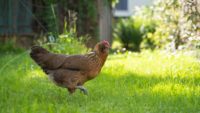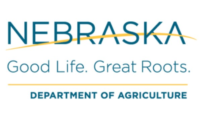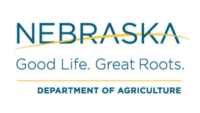The Nebraska Department of Agriculture (NDA) in conjunction with the United States Department of Agriculture’s (USDA) Animal and Plant Health Inspection Service (APHIS) has a nnounced two confirmed cases of highly pathogenic avian influenza (HPAI). This brings the total number of cases of HPAI in Nebraska to 11.
The 10th farm, a commercial flock, is in York County. The 11th farm, a backyard flock, is in Box Butte County.
According to NDA State Veterinarian Dr. Roger Dudley, both flocks will be humanely depopulated and disposed of in an approved manner.
NDA will establish a 6.2-mile control zone, as is USDA policy, around the affected premises. Poultry producers in these zones should know the signs and symptoms of HPAI and notify NDA immediately of sick or dying birds.
HPAI is a highly contagious virus that spreads easily among birds through nasal and eye secretions, as well as manure. The virus can be spread in various ways from flock to flock, including by wild birds, through contact with infected poultry, by equipment, and on the clothing and shoes of caretakers. Wild birds can carry the virus without becoming sick, while domesticated birds can become very sick.
Symptoms of HPAI in poultry include: a decrease in water consumption; lack of energy and appetite; decreased egg production or soft-shelled, misshapen eggs; nasal discharge, coughing, sneezing; incoordination; and diarrhea. HPAI can also cause sudden death in birds even if they aren’t showing any other symptoms. HPAI can survive for weeks in contaminated environments.
NDA is encouraging bird owners to prevent contact between their birds and wildlife and to practice strict biosecurity measures. If producers suspect signs of HPAI in their flock, they should report it to NDA immediately at (402) 471-2351. More information for producers can be found at nda.nebraska.gov/animal/avian/index.html or healthybirds.aphis.usda.gov.
Enhanced biosecurity helps prevent the introduction and spread of viruses and diseases including HPAI. NDA and USDA have resources available to help poultry owners step up their biosecurity efforts.
- Know the warning signs of infectious bird diseases like HPAI. Be on the lookout for unusual signs of behavior, severe illness and/or sudden deaths.
- Restrict access to your property and poultry.
- Keep it clean. Wear clean clothes, scrub boots/shoes with disinfectant, and wash hands thoroughly before and after contact with your flock.
- If you, your employees, or family have been on other farms, or other places where there is livestock and/or poultry, clean and disinfect your vehicle tires and equipment before returning home.
- Don’t share equipment, tools, or other supplies with other livestock or poultry owners.
- In addition to practicing good biosecurity, all bird owners should prevent contact between their birds and wild birds, making sure wild birds cannot access domestic poultry’s feed and water sources.
- Report sick birds immediately to: NDA at 402-471-2351; the USDA at 866-536-7593; or your veterinarian. Early detection is important to prevent the spread of disease.
According to the Centers for Disease Control and Prevention, the risk to people getting HPAI infections from birds is low. No human cases of avian influenza viruses have been detected in the U.S.
All poultry entering Nebraska must be accompanied by a VS form 9-3 or Certificate of Veterinary Inspection (CVI, or health certificate). If you are considering moving an animal into Nebraska from an affected state, please call 402-471-2351 to learn more. Nebraska poultry owners wanting to ship poultry out of state should consult the state veterinarians of the destination states for import requirements.
Source: Nebraska Dept. of Agriculture




Report Abusive Comment